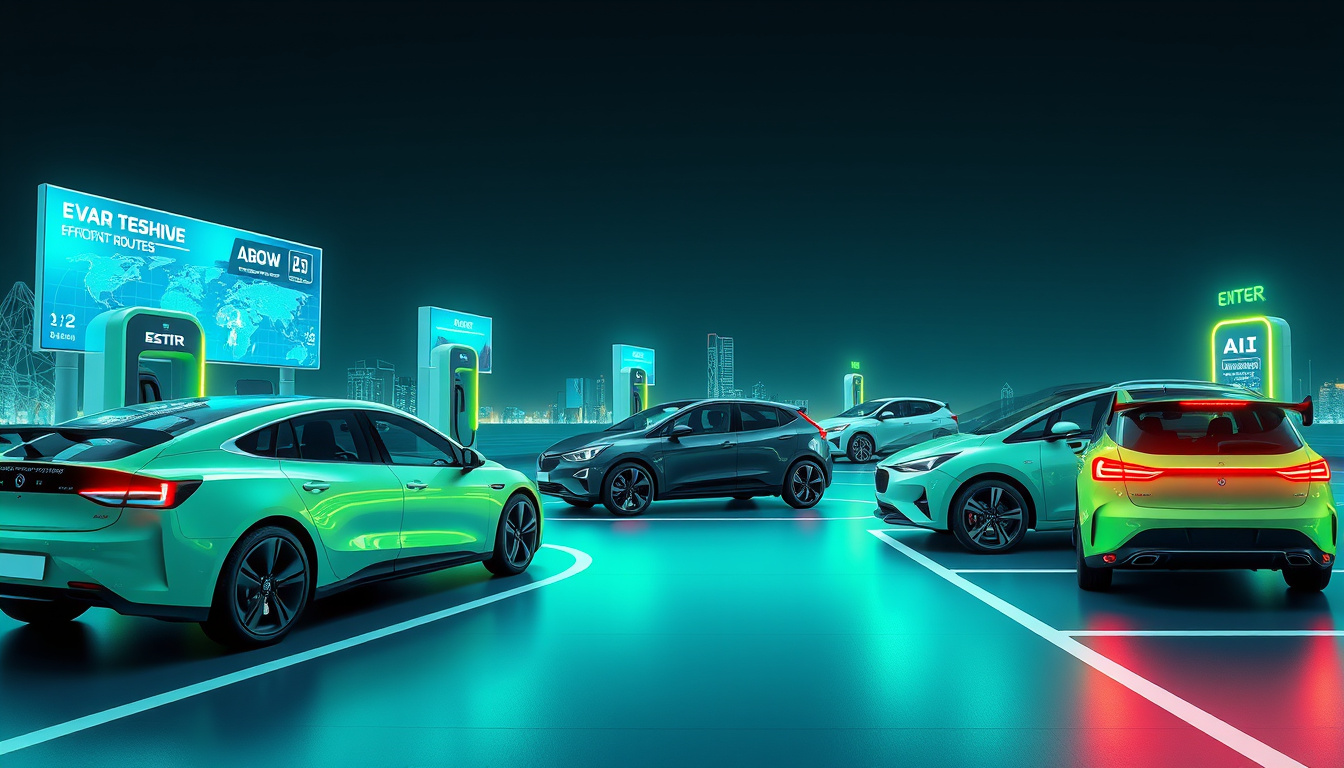The automobile industry is on the cusp of a transformative era, largely driven by the integration of Artificial Intelligence (AI) in electric vehicle (EV) technology. As global demand for sustainable and efficient transportation surges, AI emerges not just as a supporting tool but as a central player in reshaping how we design, manufacture, and operate electric vehicles. This article explores the multifaceted applications of AI in EV technology, focusing on safety improvements, battery optimization, and performance enhancements.

AI and Safety Advancements
Safety is paramount in automotive design, particularly with the rising adoption of electric vehicles. A major concern surrounds lithium-ion batteries, notably the risk of "thermal runaway," where battery cells overheat, potentially leading to fires or explosions. Researchers at the University of Arizona have developed a machine learning model that predicts temperature spikes in these batteries. By analyzing historical temperature data and utilizing thermal sensors, the AI can identify potential hotspots before they lead to failure, allowing for preventative measures to be implemented—essentially creating a safety net for EV users.
Such innovations represent a significant leap in enhancing the reliability of EVs. Automakers are increasingly adopting predictive maintenance systems powered by AI, thereby ensuring that battery health is continuously monitored, drastically reducing the risks associated with battery failures.
Optimizing Battery Chemistry
In addition to enhancing safety, AI plays a critical role in optimizing battery performance and sustainability. Advanced algorithms can analyze vast amounts of data to determine the most effective battery chemistries and designs. This approach not only improves the efficiency of the batteries themselves but also addresses broader environmental concerns. For instance, IBM Research is spearheading efforts to discover more sustainable and efficient electrolyte formulations, a key component in battery construction. Such developments could lead to batteries that charge faster and last longer, thus amplifying the overall performance and attractiveness of electric vehicles.
Moreover, by creating precise simulations of battery behavior under various conditions, AI facilitates the rapid prototyping of next-generation batteries, potentially unlocking vast economic opportunities within the EV sector. Industry leaders, like those at Mercedes-Benz, recognize that enhancing battery technology through AI could represent a billion-dollar opportunity.
Energy Efficiency Through Route Optimization
Beyond internal safety and battery chemistry, AI systems can optimize external factors that affect the performance of EVs. For example, researchers in Egypt have created an AI algorithm that enhances GPS systems for electric vehicles. This innovative approach selects the shortest and most efficient routes based on real-time data, including weather conditions and road gradients. By doing so, it can significantly reduce energy consumption, demonstrating AI’s ability to improve operational efficiency in real time.
Such systems not only save on energy costs but can also extend the active range of EVs, making electric cars more practical for everyday use. This optimization is critical as consumers prioritize longer ranges and lower operational costs when considering EVs.
Smart Charging Infrastructure
As the prevalence of electric vehicles grows, so does the need for an efficient charging infrastructure. AI will be pivotal in developing intelligent charging solutions that monitor and assess battery status, suggesting optimal times and locations for charging. This is known as “smart charging,” and it will foster greater adoption of EVs by ensuring that vehicles are charged in the most efficient and economically viable manner.
AI technologies can also enhance security protocols for both vehicles and charging stations, creating a safer ecosystem for electric vehicle users. This combination of safety, efficiency, and convenience is set to accelerate consumer confidence in EVs.
Conclusion
The incorporation of AI into electric vehicle technology heralds a new chapter in the automotive industry, transforming vehicles into smarter, safer, and more efficient modes of transportation. From improving battery safety and optimizing performance to enhancing route efficiency and fostering smart charging solutions, AI’s impact is comprehensive and profound. As we continue down this path of innovation, it becomes increasingly clear that AI is not just an adjunct to EV technology but a fundamental component in its development. With its capacity to address the unique challenges that electric vehicles face, AI is poised to redefine the future of mobility, making sustainable transportation a viable and attractive choice for consumers worldwide.
——————————————————
Voltsandvolts.com is a blog dedicated to electric vehicles (EVs). Our blog features articles on EV reviews, stories, tips, tricks, charging infrastructure, and battery technology. Join the conversation and become part of the Voltsandvolts.com community today!
